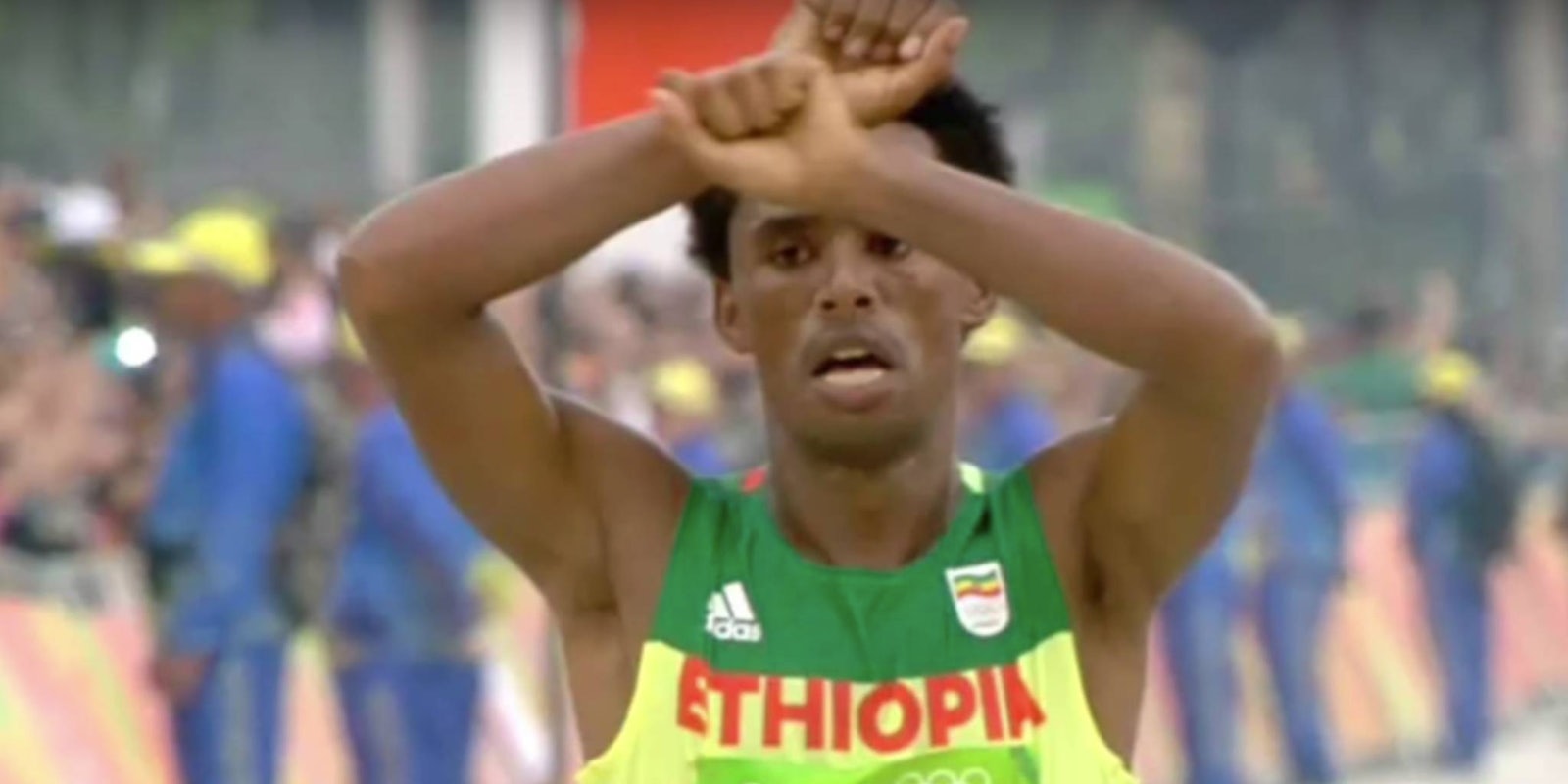The 2016 Summer Olympics in Rio de Janeiro have been a bit of a conflicted affair for those who both love the competition and spirit of the games, but are aware of their political and social implications.
On the one hand, you have stirring performances and vibrant celebrations of Brazilian culture, culminating in the host country’s first-ever, absolutely unforgettable gold medal in soccer—a sport nationally beloved above all others. On the other hand, you have the protests, the opulence against the backdrop of a crumbling economy, the teeming political crisis, the forced destruction of homes to clear space for Olympic venues, and the reported 11 deaths that occurred during the construction process, among countless other ills.
The worlds of politics and sports are almost never as far apart as people like to think. Sometimes, notions of apolitical escapism must take a backseat to the cold, unavoidable truths of the world, and the causes and beliefs that the athletes themselves are willing to champion. That’s what happened in 1968, when track and field stars John Carlos and Tommie Smith sparked outrage on the part of the International Olympic Committee (and some members of the American media) by raising their fists in a black power salute on the medal stand. And that’s what happened on the final day of the Rio games, in a situation that could be even more dangerous.
Sunday night’s closing ceremony brings an end to the last three weeks of elite athletic competition, but there are still events earlier in the day: most notably the men’s marathon, which was won by Eliud Kipchoge of Kenya in just 2:08:44. Just slightly more than a minute later, however, Feyisa Lilesa approached the finish line, and repeatedly raised his wrists up in a cross above his head. He held up the gesture as he strode over the line, before pumping his fist in triumph.
Feyisa Lilesa won a silver medal in the @Olympics. His bravery in protest is extraordinary: https://t.co/JLEaslRYbx pic.twitter.com/sxCZunb052
— Alex Howard (@digiphile) August 21, 2016
It may not have seemed all that notable in the moment, at least not without some background knowledge of what the gesture meant. But, as numerous outlets reported following Lilesa’s finish, it was an act which could come with a very big price.
The gesture was a show of solidarity with the Oromo protests in Ethiopia. Since 2014, thousands of members of the country’s largest ethnic group have organized protests against attempts by the government to expand the capital city’s borders into outlying Oromo towns and territories.
The response on the part of the Ethiopian government has been violent and bloody. Human rights observer Amnesty International reported that nearly 100 protesters were slain earlier this month. In taking his moment in the global spotlight to salute their cause and raise awareness, Lilesa is potentially putting his life on the line, too. That’s what he said in his post-race press conference, as detailed by the Sydney Morning Herald:
“I was protesting for my people. It was for all my relatives in prison. I am worried to ask my relatives to talk in prison ? if you talk you get killed. … If I go back to Ethiopia maybe they will kill me. If I am not killed maybe they will put me in prison. [If ] they [do] not put me in prison they will block me at airport.”
Lilesa said that more than 1,000 people have died over the last nine months. Having spoken out in such a public way, he’s afraid to return home, for fear that he’ll be killed by the government or thrown in jail. He’s currently considering different options, such as moving to Kenya, or trying to get a visa to live in the United States.
In a moment that represented one of the pinnacle achievements of his life—something he worked at tirelessly for years to accomplish—Lilesa had his mind focused on his people and their plight. He cared so much to show it that he was willing to risk his own life, and/or crucially alter it forever after. If you’re looking for a true hero of the 2016 games, you won’t find a stronger candidate than Feyisa Lilesa.


